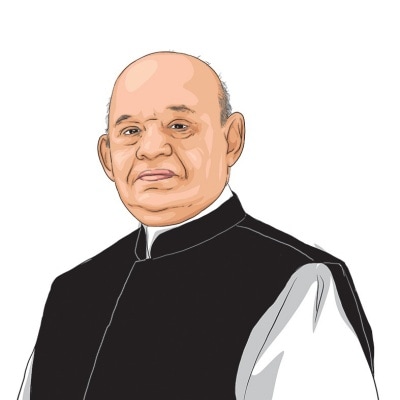Opinion Sandeep Shastri writes: In PM Modi’s barb about Mallikarjun Kharge, a glimpse of BJP’s political need to prop up image of dynastic Congress
BJP seizes every opportunity to paint Congress as a family-controlled party. The continued centrality of the Gandhi family is an issue it wants to keep centre-stage
 The BJP makes the argument that sons and daughters from political families need to demonstrate their political skills and popular acceptance. (Express photo by Prem Nath Pandey)
The BJP makes the argument that sons and daughters from political families need to demonstrate their political skills and popular acceptance. (Express photo by Prem Nath Pandey) It is now four months since Mallikarjun Kharge took over as the Congress president. It is after close to a quarter century that the presidentship has moved away from a member of the Gandhi family. It must be conceded that choosing someone without the “Gandhi” surname required a lot of coaxing and persuasion. The clinching factor was that the “eligible” Gandhis stoutly and consistently refused to offer themselves as candidates. Is Congress making a “virtue of a necessity” of electing a “non-Gandhi” as its party president?
Right through the process of electing a new Congress president, what has been closely watched is any hint of the role of the Gandhi family. The Ashok Gehlot fiasco further added grist to the rumour mill. In the Kharge-Shashi Tharoor contest, the constant refrain of the opponents of the Congress was that the battle was a mere formality. To be fair to the Gandhis, on the face of it, they remained neutral during the contest. The critic again would argue that what is formal is never real and if the veneer of formality is unmasked the reality is unmistakably visible.
Ever since Kharge has taken over, he has taken every opportunity to project himself as a man with his “own independent approach”. The Gandhis too have been making the right moves and ensuring that optics do not indicate “remote control”. A new aggression is seen in Kharge’s approach since becoming party president, especially towards the BJP government and more so its leadership. This is a conscious attempt to carve out his unique political space and distinct style.
The recent developments in Raipur during the Congress meeting were also meant to indicate the new equations within the party. The initial absence of the Gandhis at the party deliberations at Raipur, when crucial decisions were being arrived at, was aimed at indicating a fresh style within the Congress.
Congress opponents were waiting and watching to swoop down on any optics that indicated that the Gandhi family continued to dominate. The moment came when the shade of an umbrella was available only to the Gandhis and not Kharge. The Prime Minister seized the moment in a rally in Karnataka and pointed out who still mattered in the Congress.
An interesting strategy was adopted. Kharge was hailed as a grass roots leader by the PM when speaking at a rally in Northern Karnataka. He drew the attention of his audience to the treatment meted out to this grass roots leader (now president of the party) by party workers in the “umbrella incident”. In the run-up to the national election, this debate between “namdar” and “kamdar”, between “dynasty” and “down to earth”, and between “family” and “foot soldiers” is likely to become more shrill.
The BJP would not like to deny itself the rhetoric of positioning Congress as a family-controlled party. Whatever may be the change of optics, the continued assertion of the centrality of the role of the Gandhi family is an issue that the BJP would want to keep centre-stage.
Across parties, the role of political families is visible. It may be more directly apparent in some while it is masked in a sophisticated way in others. The BJP makes the argument that sons and daughters from political families need to demonstrate their political skills and popular acceptance. Their leaders have consistently maintained that even those from political families do not enjoy any special privileges on account of the family name but demonstrate ability, skill and capacity to occupy positions.
This argument is often heard in discussions involving B S Yediyurappa. The veteran leader from Karnataka and his elder son have exchanged the MLA and MP positions as and when required. The leader’s younger son waits in the wings and has been declared by the father as the candidate for the legislature seat he plans to vacate. Will the BJP bite the bullet? One would know in less than 100 days. These 100 days are bound to see a riveting debate on namdar vs kamdar.
Sandeep Shastri is the Vice Chancellor at Jagran Lakecity University, Bhopal & National Co-ordinator of the Lokniti network






